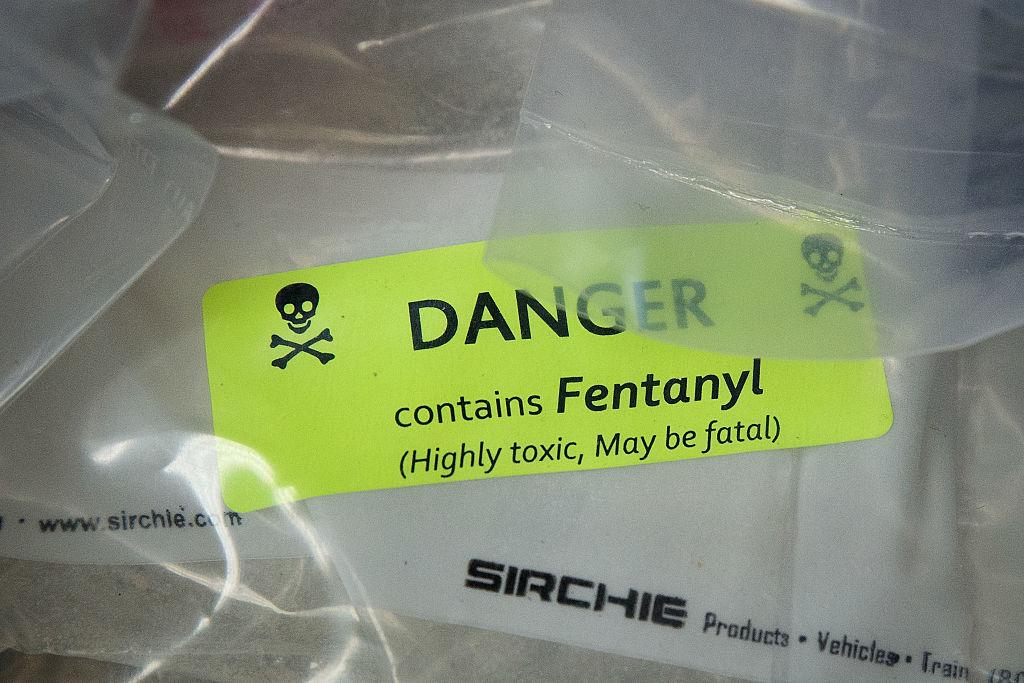National Crime Agency says 60 people have died in the UK this year from taking painkiller Fentanyl
The majority of the deaths are said to have occurred around Yorkshire and The Humber

The National Crime Agency has said 60 people in the UK have died after taking the painkiller fentanyl.
It said post mortem toxicology results showed that 60 drug-related deaths were known to be linked to fentanyl or one of its analogues.
The drug is a highly toxic opioid, which is said to be approximately 50 times more potent than heroin and 100 times stronger than morphine.
As little as 0.0002g of the drug is enough to be fatal, compared to 0.1g of heroin, according to the NCA.
Fentanyl has many different analogues – meaning similar drugs with slightly changed chemical structures – including carfentanyl, which is 10,000 times stronger than heroin.
The NCA said: “Due to the very small quantities in which fentanyl analogues can be consumed without lethal consequences, blending these with class A drugs is difficult and dangerous. The result is often inconsistent so the mixture or dose contains ‘hotspots’ – random concentrations of the fentanyl analogue.
“If a user consumes a blended substance containing a ‘hotspot’, they will experience sudden and severe opioid poisoning, often with fatal consequences.”
The agency’s deputy director, Ian Cruxton, said: “The threat of synthetic opioids is not new. However, since December 2016, we have seen a number of drug-related deaths linked to fentanyl and carfentanyl.
“The NCA has been working with partners, both in the UK and overseas, to take action against those drug dealers who are playing Russian roulette with the lives of their customers by mixing synthetic opioids with heroin and other class A drugs.
“I believe the action taken in the UK by the NCA and our police colleagues has significantly reduced the risk to the public, and we will keep targeting the source of the threat. At the same time, drug users, their friends and families need to be vigilant.
“Public Health England (PHE) has recently released guidance and I encourage people to take the time to visit their website and find out how they can protect themselves and their loved ones”.
Pete Burkinshaw, the alcohol and drug treatment lead at PHE, said the majority of deaths occurred in the Yorkshire and Humber regions.
He said: “We have been working with drug testing labs and local drug services to get more information on confirmed and suspected cases.
“We do not have a full picture, but the deaths in Yorkshire do appear to have peaked earlier in the year and fallen since our national alert and, encouragingly, our investigations in other parts of the country suggest we are not seeing the feared sharp increase in overdoses.
“Investigations are ongoing and plans are in place for a scaled-up response if necessary.”
In a statement, the agency said a man had been charged with importing, supplying and exporting class A drugs as part of its crackdown on the supply and distribution of synthetic opioids in the UK.
Kyle Enos, 25, from Gwent in Wales, was first arrested in May 2017 after officers identified him using the dark web to purchase the synthetic opioids. His arrest followed the raid on a drug-mixing facility in Leeds, which led to the arrest of three other men in April.
The drug is little known in the UK but is one of the main drugs contributing to the “opioid crisis” in the US, as approximately 142 Americans are dying from overdoses every day.
Bookmark popover
Removed from bookmarks